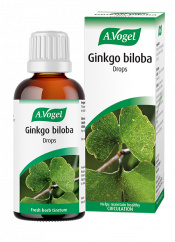An introduction to short-term memory
Short term memory has been defined as what you remember for a short period lasting from a few seconds to a few days. These will then either disappear (be forgotten) or be converted to long-term memory. In practice however, these definitions can be blurred and it is thought that the point at which short-term memory merges into long-term memory is variable and dependent on many factors.
A more useful way of thinking about short-term memory is that it helps you recall things and events to help you through today, tomorrow or this week. However, it is not necessary (or useful) for this information to be remembered any longer as it simply clogs up your brain.
For example, our short-term memory helps you remember:
- That you need to take the cake out of the oven in 5 minutes
- The three things you need from the shops
- That you have a doctor’s appointment at 2 pm tomorrow
- The invitation for dinner a week from today
The sort of information retained in your short-term memory is not needed or useful after you have performed the task or after the event and hence, does not need to be transferred into your long-term memory.
Short-term memory loss
Forgetting something you should really have remembered is a frustrating experience we all have encountered. Where is the pen I just put down? Why did I forget that the pie needed to come out of the oven?
Although one might assume that these lapses are the result of memory problems, this is often not the case. In the examples similar to the above, we do not remember the information we need because we become distracted, busy with another task (such as a telephone call) or if the event was mundane.
Short-term memory tends to deteriorate with age. This is normal and for most and it is not usually a sign of a medical problem.
However, in some circumstances, short-term memory loss can be something that should be looked at in further detail and this is especially so as one gets older. Causes of memory loss are varied and range from the menopause, to dementia caused mainly by poor circulation or Alzheimer’s disease.
Signs to look out indicating a more serious cause for memory loss include:
- Not being able to recall what you had for breakfast today, but able to remember events from your youth
- Repeating a question or story several times in a short space of time
- Inability to recall events a few minutes ago such as the person you just spoke to.
Causes of short-term memory loss
It is important to remember that there are many reasons for short-term memory loss and many of these are temporary or treatable. These include:
- Changes in hormonal levels during the menopause can cause episodes of forgetfulness – these tend to improve during the post-menopausal stage
- Stress and low mood may give rise to short-term memory problems as you are more likely to be distracted or have difficulty concentrating
- Sleep problems or insomnia can also lead to difficulties concentrating during the day, hampering the ability to remember events or facts
- Excessive amounts of alcohol, for example during a good party
- Certain types of prescribed medicines may give rise to memory problems as a side effect
- In an older person, a chest or urine infection can give rise to confusion and short-term memory loss
- A head injury or concussion.
Knowing the cause or factors contributing to your memory loss can help you put in place steps to improve your memory .
If you are at all concerned about your memory problems, you should visit your doctor.








